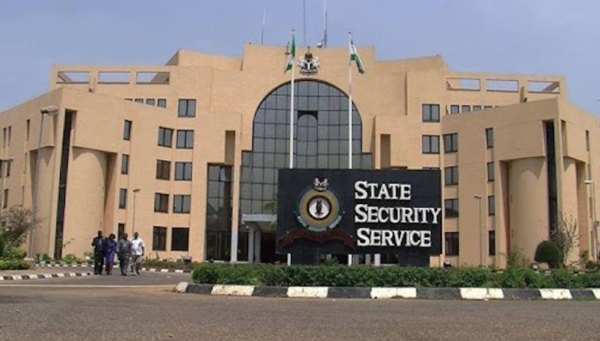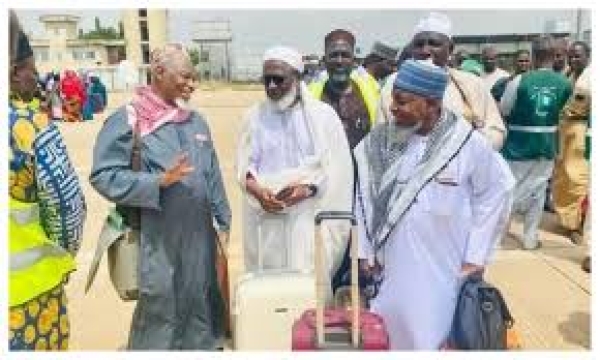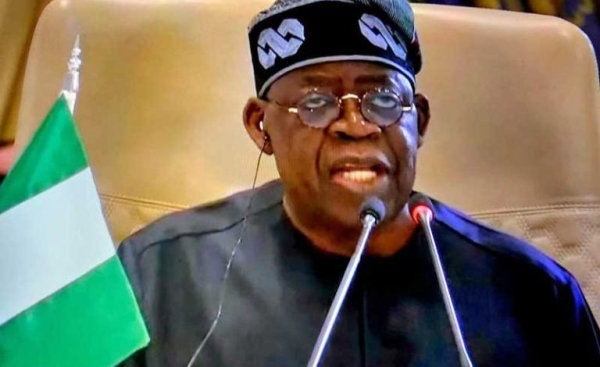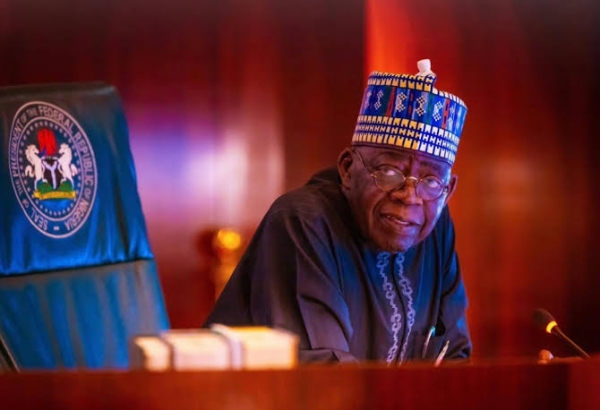TOP NEWS
Reuben's View
Latest News
Search
MOST READ
-
I Told Tinubu I Won’t Support, Work With Him – Amaechi Reveals
-
Cash Transfers: FG Is Using AI To Identify Poor Nigerians - Minister
-
Don’t choose kneeling loyalists as successors, Akpabio warns govs
-
Forfeiture Order: EFCC Slams Fresh Charges On Emefiele
-
NNPCL Reduces Fuel Pump Price
-
Atiku accuses FG of using poverty as ‘political weapon’
-
Dyna.Ai Launches Operations In Nigeria
-
[OPINION] A fictional account of Tinubu-Trump meeting at the White House - Festus Adedayo
-
[OPINION] El-tufiakwa for el-Rufai - Chidi Anselm Odinkalu
-
[OPINION] Two Years After, the Indicators are Positive - Babajide Olusola Sanwo-Olu
-
Pressure mounts on Tinubu to drop Shettima as running mate ahead of 2027
806 times -
PDP Crisis: I will fight Seyi Makinde, Bala Mohammed, Mbah until justice is Served – Wike
693 times -
Nigerians hit as Canada announces major changes to immigration policies
649 times -
[OPINION] Octopus Wike And The PDP - Reuben Abati
630 times -
DSS Builds Islamic School In Kaduna, Names It After President Bola Tinubu
566 times -
Tinubu must change his policies, he won’t win next election if it’s free and fair - says Onaiyekan
565 times -
Saudi Arabia bars Sheikh Gumi from performing 2025 Hajj
560 times -
Saraki reacts to Wike’s withdrawal from PDP Peace Agreement, reveals next move
439 times -
Corruption not allowed in Nigeria - says Tinubu
416 times -
Nigerian Economy Worse Off Under Tinubu Than Buhari — Economist, Erumebor
414 times








![[OPINION] Octopus Wike And The PDP - Reuben Abati [OPINION] Octopus Wike And The PDP - Reuben Abati](https://reubenabati.com.ng/cache/mod_bt_contentslider/199cf8910c41b2b56d33e3d5e66c8649-0c132d1dd795979de9db14cc333bbe4d_XL.jpg)
![[OPINION] Zulum And The Surge In Insurgency - Reuben Abati [OPINION] Zulum And The Surge In Insurgency - Reuben Abati](https://reubenabati.com.ng/cache/mod_bt_contentslider/ad6e52c43f66e3cf537b06ad38aa93b6-8ac05a2894b5e82aeee611e792497153_XL.jpg)
![[OPINION] Defections And Threat Of One-Party State - Reuben Abati [OPINION] Defections And Threat Of One-Party State - Reuben Abati](https://reubenabati.com.ng/cache/mod_bt_contentslider/e16351efb50f01266cc28b7377bd5e83-90b1922af682fff68852fa7fab5a4331_XL.jpg)
![[OPINION] Pope Trump, Adebanjo And Other Stories - Reuben Abati [OPINION] Pope Trump, Adebanjo And Other Stories - Reuben Abati](https://reubenabati.com.ng/cache/mod_bt_contentslider/a9c28326249471b0c6d135375d9aa6d3-66656381f38ceca0faf1a84f4c1885dd_XL.jpg)
![[OPINION] CBEX Wealth Chasers, NDIC And The Fate Of Depositors - Reuben Abati [OPINION] CBEX Wealth Chasers, NDIC And The Fate Of Depositors - Reuben Abati](https://reubenabati.com.ng/cache/mod_bt_contentslider/e7c29125e793371f688b9def0c150948-867aa1263f279020e1b930969b024a70_XL.jpg)
![[OPINION] Pope Francis (1936 – 2025) - Reuben Abati [OPINION] Pope Francis (1936 – 2025) - Reuben Abati](https://reubenabati.com.ng/cache/mod_bt_contentslider/9df20a858100040a45e2fc6915d65f41-c0395aa98d8919afead20f020215aa2b_XL.jpg)
![[OPINION] Plateau, Tsiga and Trump - Reuben Abati [OPINION] Plateau, Tsiga and Trump - Reuben Abati](https://reubenabati.com.ng/cache/mod_bt_contentslider/d4ff657a4976c08f133a5993db7ca3de-076f7f795e47e1dc74a28ca93d3c698e_XL.jpg)
![[OPINION] The Uromi 16 And The Problem With Nigeria - Reuben Abati [OPINION] The Uromi 16 And The Problem With Nigeria - Reuben Abati](https://reubenabati.com.ng/cache/mod_bt_contentslider/848d0c6943c9a9cb7639e8f5640d2cbf-4b585f7414a3fc875b761851d4c5fcd4_XL.jpg)
![[OPINION] Breakfast With The Soludos - Reuben Abati [OPINION] Breakfast With The Soludos - Reuben Abati](https://reubenabati.com.ng/cache/mod_bt_contentslider/a98b5c30f61dcb10378fdba9f5e472ab-33b747862875f50d863e709f5955da5d_XL.jpg)
![[OPINION] The Emerging Coalition Against Tinubu/APC - Reuben Abati [OPINION] The Emerging Coalition Against Tinubu/APC - Reuben Abati](https://reubenabati.com.ng/cache/mod_bt_contentslider/ddd6416fbaa008a5bcbc568f0e3c8857-02972c9f0dee40a6ad85830afbb49758_XL.jpg)
![[OPINION] Nasir El-Rufai’s Defections: PDP, CPC, APC, SDP - Reuben Abati [OPINION] Nasir El-Rufai’s Defections: PDP, CPC, APC, SDP - Reuben Abati](https://reubenabati.com.ng/cache/mod_bt_contentslider/817d1e0c4d951b18f15f406968204870-61d46cc1859ac5d4f70406214a7d7e4f_XL.jpg)
![[OPINION] A World Of Godfathers - Reuben Abati [OPINION] A World Of Godfathers - Reuben Abati](https://reubenabati.com.ng/cache/mod_bt_contentslider/f282a08e8e116be2577cc430882505bc-6d66582218d28730d47a7b9a32e18004_XL.jpg)








![[OPINION] Mr. President And APC: Criticism Is A Blessing, Not A Curse - Isaac Asabor](https://reubenabati.com.ng/media/k2/items/cache/247848dba3a86ac2ab27b5c68e38c360_XL.jpg?t=-62169984000)
![[OPINION] Power Shifts, Public Sentiment, and the Unseen Opposition in 2027 Election - Kenechukwu Aguolu](https://reubenabati.com.ng/media/k2/items/cache/256b455a53daadf1073d5f9223a902ea_XL.jpg?t=-62169984000)
![[OPINION] Seeing Mo Abudu’s Rise As A Spark For Young Women’s Ambitions - Isaac Asabor](https://reubenabati.com.ng/media/k2/items/cache/75f88a4ade2f45d88162d329f31d4c29_XL.jpg?t=-62169984000)
![[OPINION] Urging Women To Know Their Husbands As Ritual Horror In Enugu Remains Unsettling - Isaac Asabor](https://reubenabati.com.ng/media/k2/items/cache/3eb7bdcf14beecd248cdd51ee8cd23a0_XL.jpg?t=-62169984000)
![[PRESS RELEASE] Meritocracy In Civil Service In Sync With Tinubu's Renewed Hope Agenda - Olaopa](https://reubenabati.com.ng/media/k2/items/cache/805a21047eb479b0b7d5b8b8f302f4c8_XL.jpg?t=-62169984000)
![[OPINION] Nigeria—No Turning Back: A Citizen’s Plea - Prince Charles Dickson](https://reubenabati.com.ng/media/k2/items/cache/ae91a4e52065e5493ecfd259a6872533_XL.jpg?t=-62169984000)
![[OPINION] Umo Eno, Daughter And The Dirty Games Of Politics - Isaac Asabor](https://reubenabati.com.ng/media/k2/items/cache/2b92330cfc68abc767a91e76328886ec_XL.jpg?t=-62169984000)
![[OPINION] Courage At The Border: Why Prince Orji Ugochukwu Must Be Celebrated - Isaac Asabor](https://reubenabati.com.ng/media/k2/items/cache/8fe346d3bf1a29ad2e2d6112a4f9f7f3_XL.jpg?t=-62169984000)
![[OPINION] Gov Uba Sani: The Real Scale of An Anniversary - Francis Damina](https://reubenabati.com.ng/media/k2/items/cache/5c94547f41ab627d51387e3db5954f66_XL.jpg?t=-62169984000)
![[BOOK REVIEW] From Chaos to Consensus? A Critical Review of Demonstration of Craze and Nigeria's Democratic Evolution - Abiodun Adeniyi](https://reubenabati.com.ng/media/k2/items/cache/3519053153bbb77642cec7b6125ed7fb_XL.jpg?t=-62169984000)




![[OPINION] Kano cases: Bravo to court of appeal - Tonnie Iredia](https://reubenabati.com.ng/media/k2/items/cache/278b89fa6b34d8a00774b5199bda039e_XL.jpg?t=-62169984000)
![[OPINION] Orji Kalu’s ‘Christmas’ dress, - Emmanuel Aziken](https://reubenabati.com.ng/media/k2/items/cache/10633e62a41ee79aa7cde56c4c3d29c4_XL.jpg?t=-62169984000)
![[OPINION] Half Time: Tinubu ‘Don fall my hand’, - Ugoji Egbujo](https://reubenabati.com.ng/media/k2/items/cache/7b5feedefc94176cd8abf2a3a71cc42f_XL.jpg?t=-62169984000)
![[OPINION] PDP reaping what Obasanjo and Bode George sowed - Dele Sobowale](https://reubenabati.com.ng/media/k2/items/cache/265c4bd0ba09a52c0ef2094f457cd51a_XL.jpg?t=-62169984000)

![[OPINION] Tinubu’s endorsements: APC and the sycophancy conundrum - Taiwo Adisa](https://reubenabati.com.ng/media/k2/items/cache/2228c426f0a0aed538f3f5ab95e0f2ac_XL.jpg?t=-62169984000)
![[OPINION] A fictional report of Tinubu, Trump’s meeting at the White House - Festus Adedayo](https://reubenabati.com.ng/media/k2/items/cache/f85cdcb4eca3a715ee0539234320bc47_XL.jpg?t=-62169984000)
![[OPINION] Interrogating Fashola’s treatise on patriotism - Bolanle Bolawole](https://reubenabati.com.ng/media/k2/items/cache/243a0df86d3da7610a9fce0c2c0bcc03_XL.jpg?t=-62169984000)

![[OPINION] Tinubu: A Critical Second Half - Wole Olaoye](https://reubenabati.com.ng/media/k2/items/cache/5142aa2b260b1e92994ac171060a65ce_XL.jpg?t=-62169984000)
![[OPINION] El-tufiakwa for el-Rufai - Chidi Anselm Odinkalu](https://reubenabati.com.ng/media/k2/items/cache/53e3919b09afc5183a5e8719c2d85fa5_XL.jpg?t=-62169984000)
![[OPINION] A fictional account of Tinubu-Trump meeting at the White House - Festus Adedayo](https://reubenabati.com.ng/media/k2/items/cache/b94f7081734cc5450a363dddb91f3a81_XL.jpg?t=-62169984000)

![[OPINION] Two Opposing Views on Tinubu’s Two Years - Waziri Adio](https://reubenabati.com.ng/media/k2/items/cache/3199cfa71abbf1f6487269242677afab_XL.jpg?t=-62169984000)
![[OPINION] Two Years After, the Indicators are Positive - Babajide Olusola Sanwo-Olu](https://reubenabati.com.ng/media/k2/items/cache/85e27a2064cb836567d481725b6a3a3f_XL.jpg?t=-62169984000)
![[OPINION] Nigeria Beat Jamaica 5-4 on Penalties to Retain Intercontinental Unity Cup - Paul Ejime](https://reubenabati.com.ng/media/k2/items/cache/682e08bd78274f5672f1e4c03b2e1689_XL.jpg?t=-62169984000)









![[OPINION] Mr. President And APC: Criticism Is A Blessing, Not A Curse - Isaac Asabor [OPINION] Mr. President And APC: Criticism Is A Blessing, Not A Curse - Isaac Asabor](https://reubenabati.com.ng/cache/mod_bt_contentslider/9926351470cb6ac400e2cd98ab856331-247848dba3a86ac2ab27b5c68e38c360_XL.jpg)
![[OPINION] Power Shifts, Public Sentiment, and the Unseen Opposition in 2027 Election - Kenechukwu Aguolu [OPINION] Power Shifts, Public Sentiment, and the Unseen Opposition in 2027 Election - Kenechukwu Aguolu](https://reubenabati.com.ng/cache/mod_bt_contentslider/488c2c292c259de68a688f8bfc27f412-256b455a53daadf1073d5f9223a902ea_XL.jpg)
![[OPINION] Seeing Mo Abudu’s Rise As A Spark For Young Women’s Ambitions - Isaac Asabor [OPINION] Seeing Mo Abudu’s Rise As A Spark For Young Women’s Ambitions - Isaac Asabor](https://reubenabati.com.ng/cache/mod_bt_contentslider/88f2b46a336f10034f75f72b9da8f797-75f88a4ade2f45d88162d329f31d4c29_XL.jpg)
![[OPINION] Urging Women To Know Their Husbands As Ritual Horror In Enugu Remains Unsettling - Isaac Asabor [OPINION] Urging Women To Know Their Husbands As Ritual Horror In Enugu Remains Unsettling - Isaac Asabor](https://reubenabati.com.ng/cache/mod_bt_contentslider/9066dee6f37b9dea87d1f89d0fd20c28-3eb7bdcf14beecd248cdd51ee8cd23a0_XL.jpg)
![[PRESS RELEASE] Meritocracy In Civil Service In Sync With Tinubu's Renewed Hope Agenda - Olaopa [PRESS RELEASE] Meritocracy In Civil Service In Sync With Tinubu's Renewed Hope Agenda - Olaopa](https://reubenabati.com.ng/cache/mod_bt_contentslider/fef011eeb33c69f24036451e821d72b2-805a21047eb479b0b7d5b8b8f302f4c8_XL.jpg)
![[OPINION] Nigeria—No Turning Back: A Citizen’s Plea - Prince Charles Dickson [OPINION] Nigeria—No Turning Back: A Citizen’s Plea - Prince Charles Dickson](https://reubenabati.com.ng/cache/mod_bt_contentslider/d96022e7eed4d10fa8e29a0da5a3d98d-ae91a4e52065e5493ecfd259a6872533_XL.jpg)
![[OPINION] Umo Eno, Daughter And The Dirty Games Of Politics - Isaac Asabor [OPINION] Umo Eno, Daughter And The Dirty Games Of Politics - Isaac Asabor](https://reubenabati.com.ng/cache/mod_bt_contentslider/2515bd7e2bcf02ae24691cf3a7e06e74-2b92330cfc68abc767a91e76328886ec_XL.jpg)
![[OPINION] Courage At The Border: Why Prince Orji Ugochukwu Must Be Celebrated - Isaac Asabor [OPINION] Courage At The Border: Why Prince Orji Ugochukwu Must Be Celebrated - Isaac Asabor](https://reubenabati.com.ng/cache/mod_bt_contentslider/cdde38fa923b597e3d0c1ba7cd487522-8fe346d3bf1a29ad2e2d6112a4f9f7f3_XL.jpg)
![[OPINION] Gov Uba Sani: The Real Scale of An Anniversary - Francis Damina [OPINION] Gov Uba Sani: The Real Scale of An Anniversary - Francis Damina](https://reubenabati.com.ng/cache/mod_bt_contentslider/3caf2169bdbba1cd689105850dae85c3-5c94547f41ab627d51387e3db5954f66_XL.jpg)
![[BOOK REVIEW] From Chaos to Consensus? A Critical Review of Demonstration of Craze and Nigeria's Democratic Evolution - Abiodun Adeniyi [BOOK REVIEW] From Chaos to Consensus? A Critical Review of Demonstration of Craze and Nigeria's Democratic Evolution - Abiodun Adeniyi](https://reubenabati.com.ng/cache/mod_bt_contentslider/f624199779e862b40817c7fc174c3e57-3519053153bbb77642cec7b6125ed7fb_XL.jpg)




![[OPINION] Kano cases: Bravo to court of appeal - Tonnie Iredia [OPINION] Kano cases: Bravo to court of appeal - Tonnie Iredia](https://reubenabati.com.ng/cache/mod_bt_contentslider/8c0e75233fbbede8c8a1f1eb900db64e-278b89fa6b34d8a00774b5199bda039e_XL.jpg)
![[OPINION] Orji Kalu’s ‘Christmas’ dress, - Emmanuel Aziken [OPINION] Orji Kalu’s ‘Christmas’ dress, - Emmanuel Aziken](https://reubenabati.com.ng/cache/mod_bt_contentslider/b8fc74fa4db0aa63affb87cb03545da1-10633e62a41ee79aa7cde56c4c3d29c4_XL.jpg)
![[OPINION] Half Time: Tinubu ‘Don fall my hand’, - Ugoji Egbujo [OPINION] Half Time: Tinubu ‘Don fall my hand’, - Ugoji Egbujo](https://reubenabati.com.ng/cache/mod_bt_contentslider/cb02446c530e4de5640d8ce34b572e9c-7b5feedefc94176cd8abf2a3a71cc42f_XL.jpg)
![[OPINION] PDP reaping what Obasanjo and Bode George sowed - Dele Sobowale [OPINION] PDP reaping what Obasanjo and Bode George sowed - Dele Sobowale](https://reubenabati.com.ng/cache/mod_bt_contentslider/9b796ad7124ee0902a8e3c11175ae2bf-265c4bd0ba09a52c0ef2094f457cd51a_XL.jpg)

![[OPINION] Tinubu’s endorsements: APC and the sycophancy conundrum - Taiwo Adisa [OPINION] Tinubu’s endorsements: APC and the sycophancy conundrum - Taiwo Adisa](https://reubenabati.com.ng/cache/mod_bt_contentslider/69675bc7bfc1db6bdc7999d9f2bdf234-2228c426f0a0aed538f3f5ab95e0f2ac_XL.jpg)
![[OPINION] A fictional report of Tinubu, Trump’s meeting at the White House - Festus Adedayo [OPINION] A fictional report of Tinubu, Trump’s meeting at the White House - Festus Adedayo](https://reubenabati.com.ng/cache/mod_bt_contentslider/32b938bb2a446f3bf4fe7efd1403f8b1-f85cdcb4eca3a715ee0539234320bc47_XL.jpg)
![[OPINION] Interrogating Fashola’s treatise on patriotism - Bolanle Bolawole [OPINION] Interrogating Fashola’s treatise on patriotism - Bolanle Bolawole](https://reubenabati.com.ng/cache/mod_bt_contentslider/2bf66c59ba8271021bc1021ab28d9293-243a0df86d3da7610a9fce0c2c0bcc03_XL.jpg)

![[OPINION] Tinubu: A Critical Second Half - Wole Olaoye [OPINION] Tinubu: A Critical Second Half - Wole Olaoye](https://reubenabati.com.ng/cache/mod_bt_contentslider/692d20b50387b6534adc2962556dc309-5142aa2b260b1e92994ac171060a65ce_XL.jpg)
![[OPINION] El-tufiakwa for el-Rufai - Chidi Anselm Odinkalu [OPINION] El-tufiakwa for el-Rufai - Chidi Anselm Odinkalu](https://reubenabati.com.ng/cache/mod_bt_contentslider/4602bac522c46858004f401c15c2da05-53e3919b09afc5183a5e8719c2d85fa5_XL.jpg)
![[OPINION] A fictional account of Tinubu-Trump meeting at the White House - Festus Adedayo [OPINION] A fictional account of Tinubu-Trump meeting at the White House - Festus Adedayo](https://reubenabati.com.ng/cache/mod_bt_contentslider/d08a335683cdc1074061349d40cbb6f1-b94f7081734cc5450a363dddb91f3a81_XL.jpg)

![[OPINION] Two Opposing Views on Tinubu’s Two Years - Waziri Adio [OPINION] Two Opposing Views on Tinubu’s Two Years - Waziri Adio](https://reubenabati.com.ng/cache/mod_bt_contentslider/9060d702ae4d51411163525a1435c7f8-3199cfa71abbf1f6487269242677afab_XL.jpg)
![[OPINION] Two Years After, the Indicators are Positive - Babajide Olusola Sanwo-Olu [OPINION] Two Years After, the Indicators are Positive - Babajide Olusola Sanwo-Olu](https://reubenabati.com.ng/cache/mod_bt_contentslider/051577651a7c603a95a5d8fa31acaea0-85e27a2064cb836567d481725b6a3a3f_XL.jpg)
![[OPINION] Nigeria Beat Jamaica 5-4 on Penalties to Retain Intercontinental Unity Cup - Paul Ejime [OPINION] Nigeria Beat Jamaica 5-4 on Penalties to Retain Intercontinental Unity Cup - Paul Ejime](https://reubenabati.com.ng/cache/mod_bt_contentslider/30d553023837ccaa8e2f9af91aa6328f-682e08bd78274f5672f1e4c03b2e1689_XL.jpg)






![[OPINION] The AFRICOM Commander - Femi Fani-Kayode [OPINION] The AFRICOM Commander - Femi Fani-Kayode](https://reubenabati.com.ng/cache/mod_bt_contentslider/fc3d1587c9a8e20fcee59a0271e6940c-a5618e1c0a529344cb636864da93b090_XL.jpg)



![[PHOTOS] 22 members of Kano sports delegation to 2024 gateway games feared dead in fatal accident [PHOTOS] 22 members of Kano sports delegation to 2024 gateway games feared dead in fatal accident](https://reubenabati.com.ng/cache/mod_bt_contentslider/2ae6e8bfb1ad0d6b1a63f21b75ece1d6-045dcb317135e7253a5bda62ba1d1ffa_XL.jpg)














![[OPINION] Accidental second wives - Funke Egbemode [OPINION] Accidental second wives - Funke Egbemode](https://reubenabati.com.ng/cache/mod_bt_contentslider/6faeab9b3bf0422cc2d965c4022d1b22-afbb871104c3d77e54d9b981d0ff99b9_XL.jpg)


![[OPINION] Weep not for Ngugi, our ancestor deserves petals not tears - Owei Lakwemfa [OPINION] Weep not for Ngugi, our ancestor deserves petals not tears - Owei Lakwemfa](https://reubenabati.com.ng/cache/mod_bt_contentslider/e9fe21e84050e3c52b5d8555101d40dd-62f50e9b9f1b338af0593617d866d31e_XL.jpg)
![[OPINION] “Defect with me or resign” — Governor, - Donu Kogbara [OPINION] “Defect with me or resign” — Governor, - Donu Kogbara](https://reubenabati.com.ng/cache/mod_bt_contentslider/3ee88aac514321df2274663fb2f0b378-9cd7d60fd04565fb77dfae6ad02661b7_XL.jpg)


![[OPINION] For the Ooni - Akin Osuntokun [OPINION] For the Ooni - Akin Osuntokun](https://reubenabati.com.ng/cache/mod_bt_contentslider/87c3d0f5ff0d1f74c35f0d425f9c4ab9-5933a155904f9ace9b25d80887e39416_XL.jpg)
![[OPINION] Increasing Global Concerns Over Microplastics Exposure - Okey Ikechukwu [OPINION] Increasing Global Concerns Over Microplastics Exposure - Okey Ikechukwu](https://reubenabati.com.ng/cache/mod_bt_contentslider/04085c8c581d1d27ec3cee6d2129397c-517f024b6e30a05c075aaa4ca965e4c8_XL.jpg)
![[OPINION] Mounting Debt, Shrinking Public Trust - Obinna Chima [OPINION] Mounting Debt, Shrinking Public Trust - Obinna Chima](https://reubenabati.com.ng/cache/mod_bt_contentslider/ef9644408b2c4323ef89208c6c72d01a-1fd8f6f6d76f4edd6d2720010d7e7ff3_XL.jpg)
![[OPINION] Why the Anti-Tinubu Coalition Isn’t Coalescing - Farooq A. Kperogi [OPINION] Why the Anti-Tinubu Coalition Isn’t Coalescing - Farooq A. Kperogi](https://reubenabati.com.ng/cache/mod_bt_contentslider/e57f240fdb515e065dd20438e1ad0479-54ea5e9226447c69852e1d13b4eeb76d_XL.jpg)
![[OPINION] Why There’s No Such Thing as “Correct” or “Incorrect” Pronunciation - Farooq A. Kperogi [OPINION] Why There’s No Such Thing as “Correct” or “Incorrect” Pronunciation - Farooq A. Kperogi](https://reubenabati.com.ng/cache/mod_bt_contentslider/0cf65eaf10edddbbe2f8baabbfe6b68a-c149e93800167b9e23e0eb22bdd4ede1_XL.jpg)
![[OPINION] "Wok, Wak, Wek!"—The African English Accent Showdown - Farooq A. Kperogi [OPINION] "Wok, Wak, Wek!"—The African English Accent Showdown - Farooq A. Kperogi](https://reubenabati.com.ng/cache/mod_bt_contentslider/111a134bac0a1571fe6fa3a432144be5-ca0bc3e1ad5236c22bdb811164d7f3f0_XL.jpg)
![[OPINION] AfDB gets New Head as Africa battles Tough Socioeconomic Challenges - Paul Ejime [OPINION] AfDB gets New Head as Africa battles Tough Socioeconomic Challenges - Paul Ejime](https://reubenabati.com.ng/cache/mod_bt_contentslider/dcf7c814fcfc261cb013c9f377d3363f-3b1e664c396cfc9d22269932bb2663f6_XL.jpg)









![[OPINION] The Umo Eno interview - Etim Etim [OPINION] The Umo Eno interview - Etim Etim](https://reubenabati.com.ng/cache/mod_bt_contentslider/9bee656c74c3d06bc9df6b465eb65a8a-d0ec04d146be7bbe34469484a2457f51_XL.jpg)
















![Biafra Day: Umuahia streets deserted as residents observe sit-at-home [PHOTOS] Biafra Day: Umuahia streets deserted as residents observe sit-at-home [PHOTOS]](https://reubenabati.com.ng/cache/mod_bt_contentslider/655ee4675fb31b3f4b201facba225b9f-d4531d9d1fe3629ab4947c0f694353b5_XL.jpg)























![[OPINION] A fictional account of Tinubu-Trump meeting at the White House - Festus Adedayo](/media/k2/items/cache/b94f7081734cc5450a363dddb91f3a81_XL.jpg)
![[OPINION] El-tufiakwa for el-Rufai - Chidi Anselm Odinkalu](/media/k2/items/cache/53e3919b09afc5183a5e8719c2d85fa5_XL.jpg)
![[OPINION] Two Years After, the Indicators are Positive - Babajide Olusola Sanwo-Olu](/media/k2/items/cache/85e27a2064cb836567d481725b6a3a3f_XL.jpg)
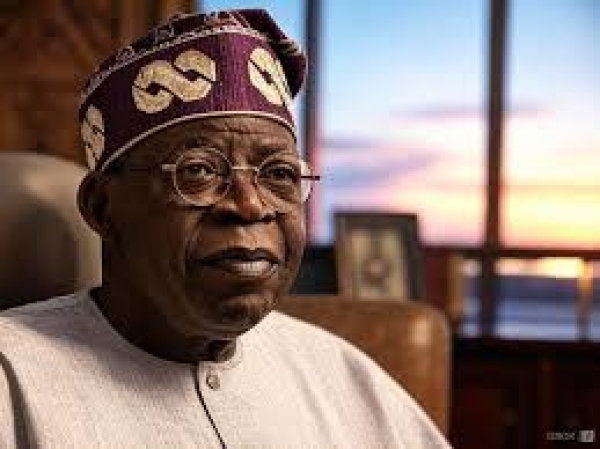
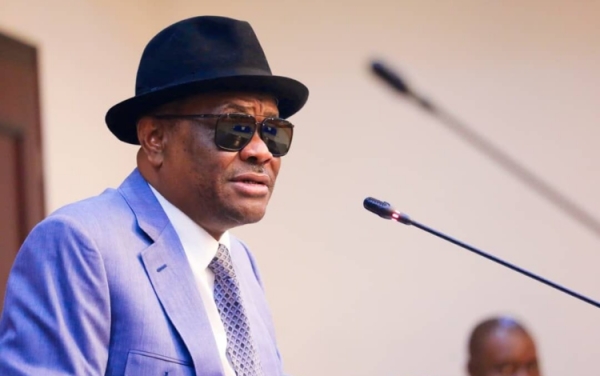

![[OPINION] Octopus Wike And The PDP - Reuben Abati](/media/k2/items/cache/0c132d1dd795979de9db14cc333bbe4d_XL.jpg?t=20250527_110203)
